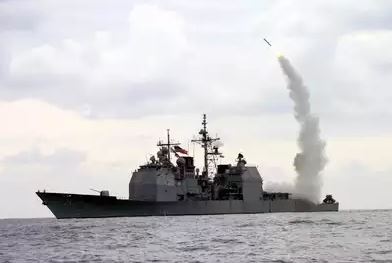The United States will sell up to 220 Tomahawk cruise missiles to Australia, according to the plans that country has disclosed. The sale, which comes with a price tag of nearly $900 million, was approved by the U.S. State Department on Friday. The prime contractor for the deal will be Raytheon Missiles and Defense, based in Arizona.
The announcement follows Australia’s recent decision to buy nuclear-powered attack submarines from the U.S. to modernize its fleet. The new submarines will be capable of firing the Tomahawk missiles, according to Australian officials.
The move is seen as part of Australia’s efforts to counter growing concerns about China’s influence in the Indo-Pacific region. Japan has also announced plans to upgrade its military, including the purchase of 400 Tomahawk cruise missiles for deployment by 2026.
Australian Defense Minister Richard Marles said the missile purchase was “a really important capability for the country” and would enable Australia to “keep Australia safe” by extending its strike range beyond its shores.
Defense Industry Minister Pat Conroy said the missiles could be fired from the Virginia-class submarines that Australia would be buying under the so-called AUKUS deal. He added that the cruise missiles were a critical part of Australia’s defense strategy.
However, the submarine deal has raised concerns that it could clear the way for bad actors to escape nuclear oversight in the future. Rafael Grossi, director-general of the International Atomic Energy Agency, pledged to be “very demanding” in overseeing the planned transfer of technology from the U.S. to Australia.
Former Australian Prime Minister Paul Keating also criticized the submarine deal, saying it was “the worst deal in all history” due to its huge cost. Australian officials estimate the cost of the submarines at between 268 billion and 368 billion Australian dollars ($178-$245 billion) over three decades.
However, current Prime Minister Anthony Albanese defended the deal, saying it would increase Australia’s capacity to defend itself by more than 10%. He added that the government had been transparent about the expense.
In a statement, the U.S. State Department said the missile sale would support the foreign policy and national security objectives of the United States, and that Australia was “one of our most important allies in the Western Pacific.”
